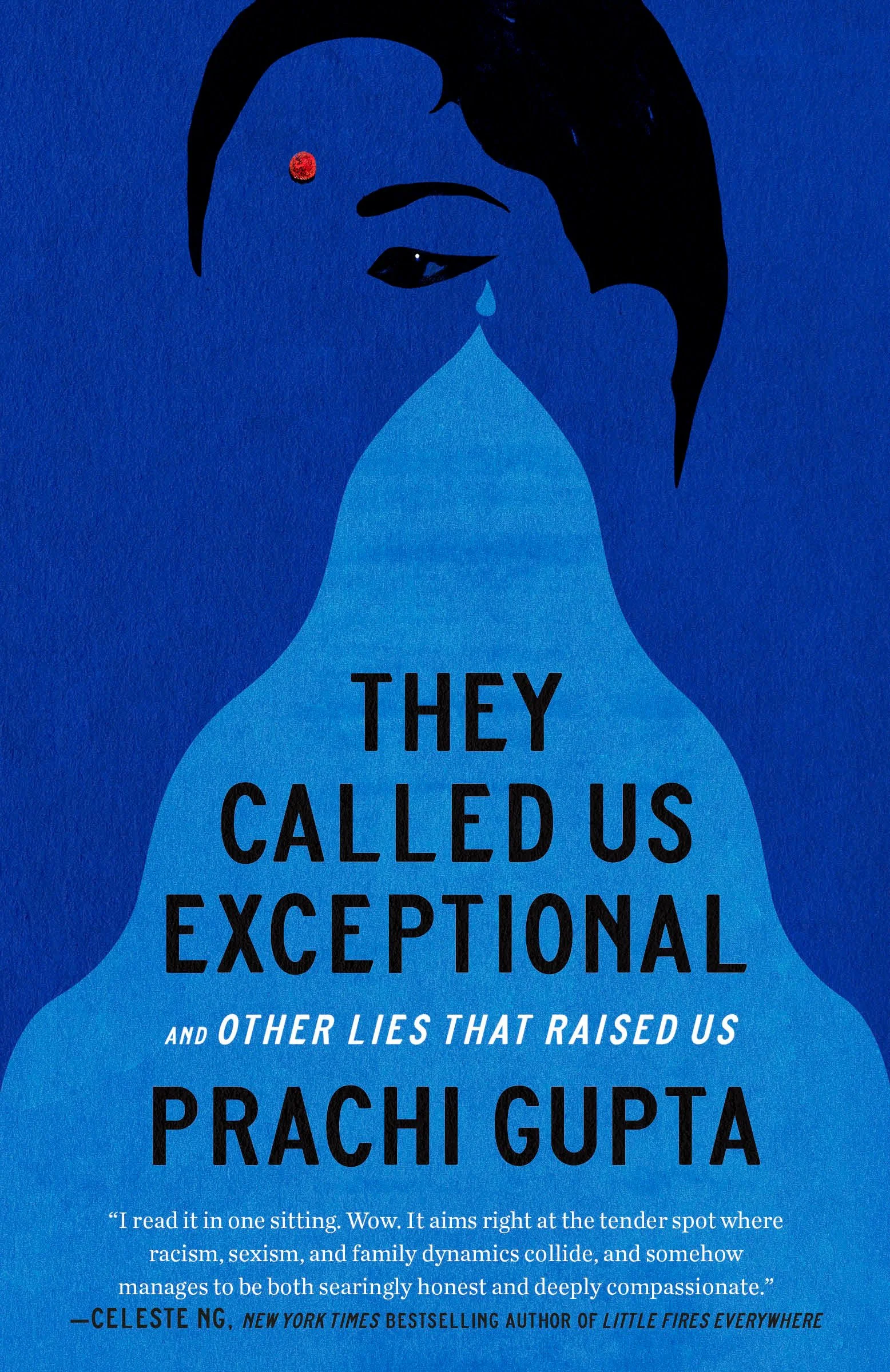about THEY CALLED US EXCEPTIONAL and other lies that raised us
An Indian American daughter reveals how the dangerous model minority myth fractured her family “in this searingly honest memoir that manages to be at once a scalding indictment and a heartfelt love letter” - Scott Stossel, author of My Age of Anxiety & National Editor of The Atlantic
“In examining with boundless love the secrets and sorrows of one family, Gupta shows us the life-altering power of telling one’s truth” - Megha Majumdar, author of NYTimes Bestseller A Burning
“A memoir so honest and intimate, I felt I ought to look away” - Diksha Basu author of The Windfall
How do we understand ourselves when the story about who we are supposed to be is stronger than our sense of self? What do we stand to gain—and lose—by taking control of our narrative? These questions propel Prachi Gupta’s heartfelt memoir and can feel particularly fraught for immigrants and their children who live under immense pressure to belong in America.
Prachi Gupta’s family embodied the American Dream: a doctor father and a nurturing mother who raised two high-achieving children with one foot in the Indian American community, the other in Pennsylvania’s white suburbia. But their belonging was predicated on a powerful myth: that Asian Americans have perfected the alchemy of middle-class life, raising tight-knit, ambitious families that are immune to hardship. Molding oneself to fit this perfect image often comes at a steep but hidden cost. In They Called Us Exceptional, Gupta articulates the dissonance, shame, and isolation of being upheld as an American success story while privately navigating traumas invisible to the outside world.
Gupta addresses her mother throughout the book, weaving a deeply vulnerable personal narrative with history, postcolonial theory, and research on mental health, to show how she slowly made sense of her reality and freed herself emotionally and physically from the pervasive, reductive myth that had once defined her. But, tragically, the act that liberated Gupta was also the act that distanced her from those she loved most. By charting her family’s slow unraveling and her determination to break the cycle, Gupta shows how traditional notions of success keep us disconnected from ourselves and one another—and passionately argues why we must orient ourselves toward compassion over belonging.
PRAISE FOR THEY CALLED US EXCEPTIONAL:
“They Called Us Exceptional is a marvel: a searingly honest memoir that manages to be at once a scalding indictment and a heartfelt love letter. In its exploration of how family psychopathology and cultural history entwine themselves across generations, it calls to mind Gabriel García Márquez and Salman Rushdie. Prachi Gupta has proven herself exceptional in at least two regards—as a woman of formidable resilience and as a writer of outsized talent.” —Scott Stossel, national editor of The Atlantic and author of My Age of Anxiety
“In holding up to the light the received ideas of success, and in examining with boundless love the secrets and sorrows of one family, Gupta shows us the life-altering power of telling one’s truth.” —Megha Majumdar, New York Times bestselling author of A Burning
“What happens when a person discovers that the American Dream is a virus? Gupta’s stunning and devastating debut contorts—existing as a disquisition on Asian American assimilation into the West, a bird’s-eye view of how patriarchy, capitalism, and white supremacy congealed to destroy a family, and a coming-of-age tale about a woman who had to fight to make space for her voice.” —Damon Young, author of What Doesn’t Kill You Makes You Blacker
“A memoir so honest and intimate, I felt I ought to look away. Gupta blasts through the imprisoning phrase Log kya kahenge—‘What will people say?’—and brings us into her life and her home with awe-inspiring courage, nuance, and intelligence.” —Diksha Basu, author of The Windfall
“Gupta has penned a gripping memoir that considers immigrant aspirations and tribulations alongside the heavy generational trauma of an immigrant parent leaving behind the known and the loved. With grace and dexterity, Gupta bravely interrogates not only the obvious but also the seething emotional territory that lies just beneath . . . A remarkable book that is both lyrical and brave.” —Rafia Zakaria, author of Against White Feminism
